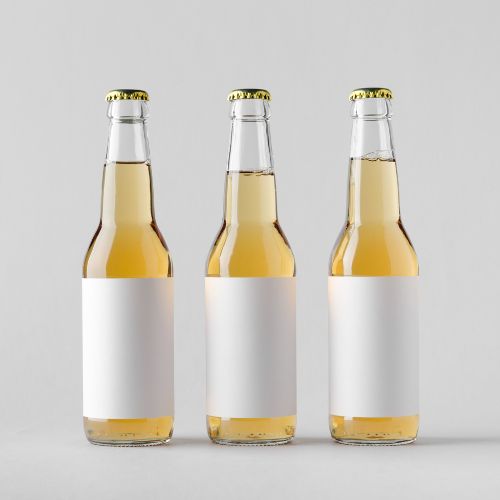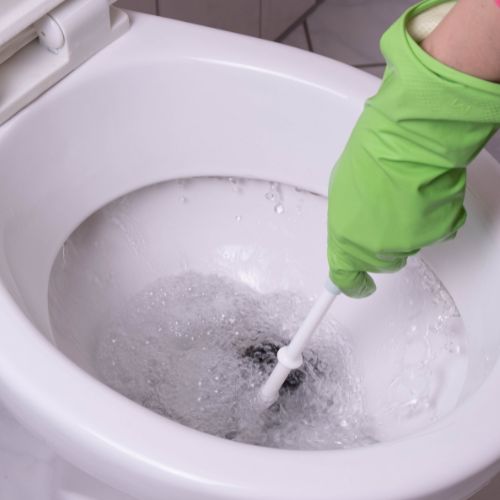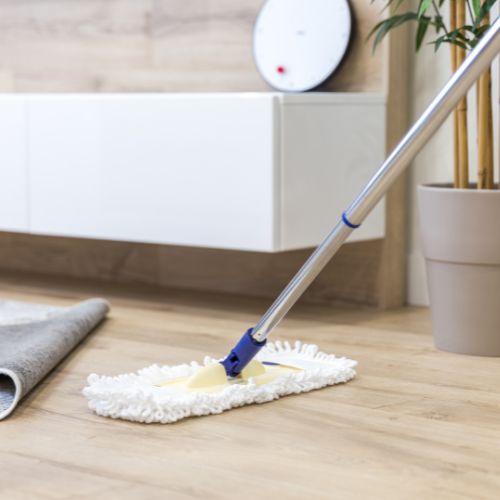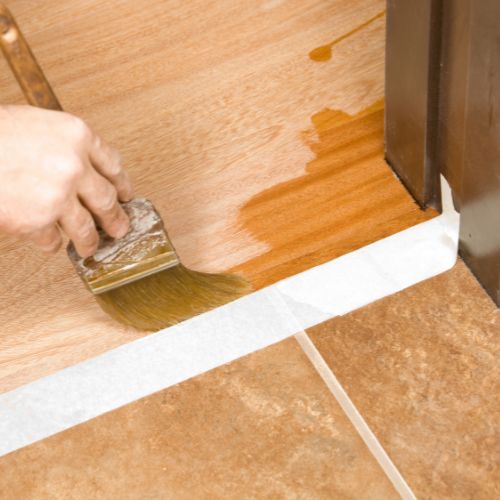Can Beer Be Used for Cleaning?
Cleaning is an essential part of maintaining a clean and hygienic living environment. While there are numerous cleaning products available in the market, some unconventional methods can also be effective. One such surprising option is beer, which can be used for cleaning purposes in certain situations.
Beer, a beverage enjoyed by many, contains various chemical compounds that can contribute to its cleaning properties. It typically includes acids, carbonation, and enzymes that can help break down dirt, grime, and stains. However, it is important to note that beer should be used judiciously and only for specific cleaning tasks.
One of the common uses of beer for cleaning is for polishing copper and brass. These metals tend to tarnish over time, but the acids in beer can help remove oxidation and restore their shine. By soaking a cloth or sponge in beer and gently rubbing the metal surface, one can effectively remove tarnish. Afterward, rinsing with water and buffing dry completes the process.
In addition to metal polishing, beer can also be used to polish wood furniture. If water stains or blemishes mar the surface of wooden items, a damp cloth soaked in beer can help remove them. The beer’s natural acids work to dissolve the stains, while the rubbing action helps to restore the wood’s luster. Subsequently, buffing the furniture with a dry cloth adds the finishing touch.
Beer’s stain-removing properties can also be harnessed in fabric and carpet cleaning. For instance, beer can be used to tackle stubborn stains like coffee, tea, or ink. By blotting the stained area with a cloth soaked in beer, the beer’s enzymes and mild acidity can help break down the stain particles. Followed by rinsing with water, this technique can prove surprisingly effective.

When it comes to kitchen cleanup, beer can even assist in cleaning pots and pans. The carbonation and acidity in beer can aid in loosening food residues that are stuck to cookware. By pouring some beer into the dirty pans and letting it soak, the beer works to dissolve the stubborn particles. Subsequently, scrubbing with a sponge or brush and rinsing will leave the cookware clean and ready for use again.
However, it’s important to exercise caution when using beer for cleaning. Different types of beer have varying levels of acidity, so it’s advisable to opt for milder, less hoppy beers. It’s also crucial to test a small, inconspicuous area before applying beer to any surface, as it may cause discoloration or damage.
While beer can be an unconventional but effective cleaning agent for specific tasks, it should not replace traditional cleaning products for general cleaning purposes. It is best to use beer sparingly and prioritize its use for targeted cleaning needs. With the right approach, one can enjoy the benefits of beer not only as a refreshing beverage but also as an occasional cleaning aid.
Can Beer Be Used for Cleaning?
Certainly! Beer can indeed be utilized for cleaning purposes in specific situations. While it may not be the conventional choice, its chemical properties can prove beneficial for certain cleaning tasks. For instance, beer’s mild acidity and carbonation can aid in removing tarnish from copper and brass, polishing wood furniture, and loosening stubborn food residues on pots and pans. Moreover, beer’s enzymes and mild acidity can be effective in tackling stains like coffee, tea, or ink on fabrics or carpets. It is important to note that beer should be used with caution, sparingly, and tested on a small area first to avoid any potential damage or discoloration. However, for general cleaning needs, it is advisable to rely on traditional cleaning products specifically formulated for those purposes.
Is beer a good Disinfectant?
No, beer is not a good disinfectant. While beer contains alcohol, which has some disinfectant properties, it typically has a relatively low alcohol content compared to dedicated disinfectants. The alcohol concentration in beer is not sufficient to effectively kill a wide range of bacteria, viruses, and other pathogens.
To effectively disinfect surfaces and objects, it is recommended to use products specifically designed for disinfection. These products, such as household disinfectants or sanitizers, contain higher concentrations of alcohol or other active ingredients that are proven to kill a broad spectrum of germs and pathogens.
When it comes to maintaining proper hygiene and preventing the spread of diseases, it is essential to rely on reliable disinfection methods. This includes regularly cleaning and disinfecting surfaces, particularly high-touch areas like doorknobs, countertops, and bathroom fixtures, using appropriate disinfectants.
It’s important to follow the instructions provided by the manufacturer when using disinfectants. This includes adhering to the recommended contact time, which is the amount of time the disinfectant needs to remain on the surface to effectively kill the pathogens.
While beer may have some cleaning properties and can be enjoyed responsibly as a beverage, it is not a suitable substitute for dedicated disinfectants when it comes to maintaining proper hygiene and disinfecting surfaces.
Will beer clean the toilet?

The chemical composition of beer and its effectiveness as a cleaning agent are not specifically tailored for toilet cleaning tasks.
Toilets require thorough disinfection and removal of bacteria and germs, which is best achieved using dedicated toilet cleaners or disinfectants. These products are specifically formulated to tackle the buildup of mineral deposits, stains, and harmful bacteria commonly found in toilets.
On the other hand, beer contains organic compounds, acids, and enzymes that may not be effective at eliminating the bacteria and germs in the toilet bowl. Additionally, the carbonation in beer may cause foaming, which could make the cleaning process more challenging.
To ensure proper hygiene and cleanliness in your toilet, it is recommended to use specialized toilet cleaning products. These products typically contain disinfectants, detergents, and chemicals that are specifically designed to remove stains, kill bacteria, and eliminate odors.
When cleaning your toilet, follow the instructions on the toilet cleaner packaging and use a toilet brush or scrubber to thoroughly clean the bowl, rim, and other areas. Always prioritize safety by wearing gloves and ensuring proper ventilation while using cleaning products.
Remember, while beer can have its uses for certain cleaning tasks, it is best to rely on dedicated toilet cleaners to ensure effective and hygienic toilet cleaning.
Was beer used to clean floors?

Beer is not commonly used for cleaning floors, especially in a general household cleaning. While it may have some cleaning properties, more suitable and effective options are available for floor cleaning.
Beer contains acids, enzymes, and carbonation, which can potentially help break down certain stains or residues on floors. However, the composition of beer and its potential stickiness can make it less ideal for general floor cleaning. Additionally, beer may leave behind an odor that is not desirable for floors.
When it comes to floor cleaning, it is recommended to use appropriate cleaning products designed specifically for your flooring. For example, hardwood floors, laminate floors, tile floors, and carpets each require different cleaning methods and products.
For most floor types, a combination of water, a suitable floor cleaner, or a mild detergent is generally more effective in removing dirt, grime, and stains. These products are specifically formulated to clean and protect the particular flooring material without causing damage or leaving behind residue.
Following the manufacturer’s instructions for any floor-cleaning product you use is important. This ensures that you use the appropriate dilution ratio and follow the recommended application method.
While beer may have some limited cleaning properties, it is not a recommended or commonly used option for general floor cleaning. To achieve optimal results and maintain the cleanliness and appearance of your floors, it is best to use appropriate floor cleaning products designed for your specific flooring type.
Does beer cause stains?

Yes, beer can cause stains under certain circumstances. Like many other beverages, beer contains pigments, sugars, and other compounds that can potentially lead to stains if spilled or left untreated on certain surfaces.
The potential for staining can vary depending on factors such as the color of the beer, the material of the surface it comes into contact with, and how long the beer remains in contact with the surface.
Common surfaces that may be susceptible to beer stains include fabrics, carpets, upholstery, and porous materials. If beer is spilled on these surfaces, it is important to address the stain promptly to minimize the risk of a permanent mark.
To prevent or remove beer stains, here are some general tips:
- Act quickly: Blot the area gently with a clean cloth or paper towel to absorb as much of the spilled beer as possible.
- Dilute and clean: Mix a mild detergent with water and use a clean cloth to blot the stained area. Avoid rubbing, as it can spread the stain further. Rinse the cloth frequently and repeat until the stain lightens or disappears.
- Test and treat upholstery: If the beer stain is on upholstery or delicate fabrics, it is advisable to test any cleaning solution on a small, inconspicuous area first to ensure it does not cause discoloration or damage. If the test is successful, gently clean the stained area with the appropriate cleaning solution.
- Seek professional help: For stubborn or extensive beer stains, it may be best to consult a professional cleaner who specializes in stain removal. They can provide guidance and utilize specialized techniques and products to address the stain effectively.
Prevention is key to avoiding beer stains. Handling beverages carefully, using coasters or protective mats on surfaces, and being mindful of spills can help reduce the risk of staining.
Remember that different beers may contain varying ingredients, including additives and dyes, which can affect their staining potential. It’s also important to consider the material and color of the surface the beer comes into contact with, as certain surfaces may be more prone to staining than others.
While beer can potentially cause stains, prompt action and appropriate cleaning methods can help minimize or remove them successfully.
READ MORE
Fabuloso Cleaning Hacks That Actually Work